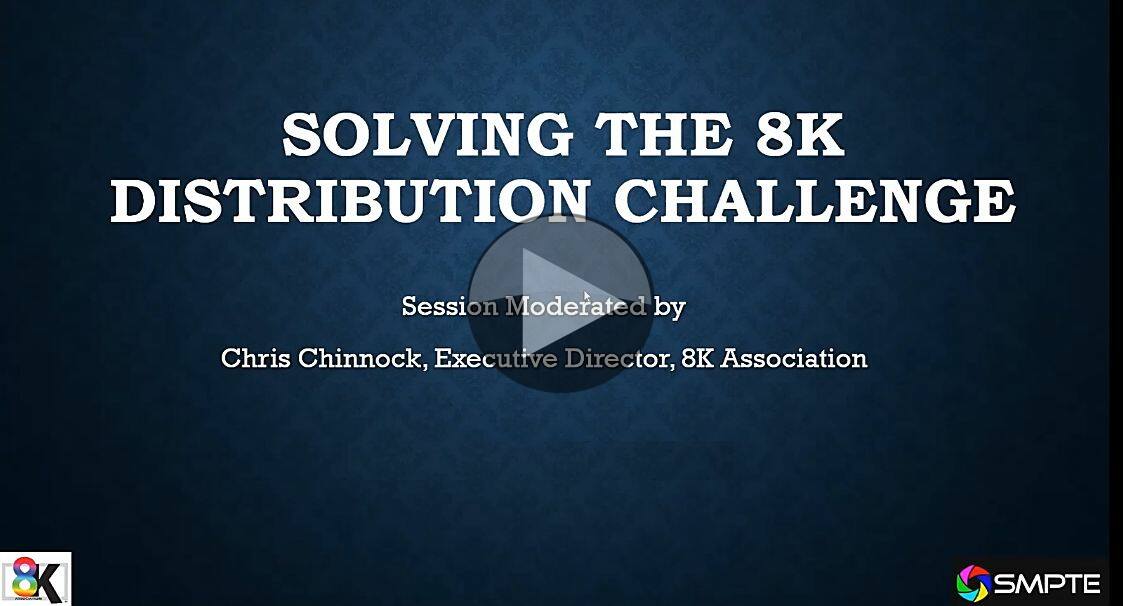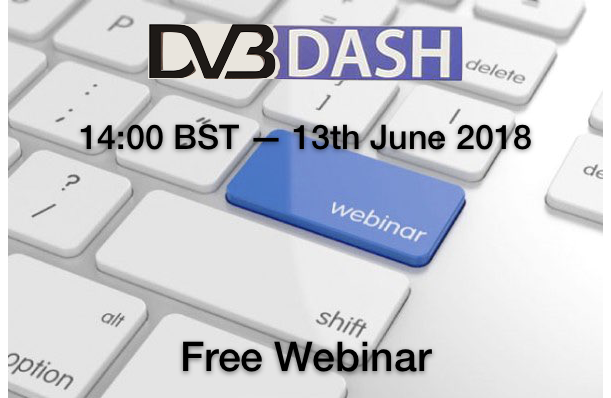With the Tokyo Olympics less than 2 weeks away, 8K is back in focus. NHK have famously been key innovators and promoters of 8K for many years, have launched an 8K channel on satellite and will be broadcasting the games in 8K. That’s all very well, but is 8K a viable broadcast format for other public and commercial broadcasters? One problem for 8K is how to get it to people. Whilst there are plenty of bandwidth problems to contend with during production, all of that will be for nought if we can’t get it to the customer.
This panel, run by the 8K Association in conjunction with SMPTE, looks to new codecs to help reduce the burden on connectivity whether RF or networks. The feeling is that HEVC just can’t deliver practical bandwidths, so what are the options? The video starts with Bill Mandel from Samsung introducing the topics of HDR display using HDR10+, streaming with CMAF and bandwidth. Bill discusses future connectivity improvements which should come into play and then looks at codec options.
Bill and Stephan Wenger give their view on the codecs which were explained in detail in this SMPTE deep dive video so do take a look at the article for more context. AV1 is the first candidate for 8K distribution that many think of since it is known to have better compression than HEVC and is even seeing some hardware support in TVs and is being trialled by YouTube. However, the trailer is 50Mbps and therefore not suitable for many connections. Looking at better performance, MPEG’s EVC is a potential candidate which offers continued improvement over AV1 and a better licensing model than HEVC. Stephan’s view on codecs is that users really don’t care what the codec is, they just need the service to work. He points towards VVC, the direct successor to HEVC, as a way forward for 8K since it delivers 40 to 50% bandwidth reduction opening up the possibility of a 25Mbps video channel. Noa published MPEG standard, the market awaits patent information and vendor implementations.
Stephan talks about MPEG’s LCEVC standard which has similarities to Samsung’s Scalenet which Bill introduced. The idea is to encode at a lower resolution and use upscaling to get the desired resolution using AI/machine learning to make the scaling look good and, certainly in the case of LCEVC, a low-bandwidth stream of enhancement data which adds in key parts of video, such as edges, which would otherwise be lost. Stephan says that he awaits implementations in the market to see how well this works. Certainly, taking into account LCEVC’s ability to produce compression using less computation, it may be an important way to bring 8K to some devices and STBs.
The discussion is rounded off by Mickael Raulet, CTO of ATEME who talks us through an end-to-end test broadcast done using VVC. This was delivered by satellite to set top boxes and over streaming with a UHD channel at 15Mbps. His take-away from the experience is that VVC is a viable option for broadcasters and 8K and may be possible with using EVC’s main profile. The video finishes with a Q&A covering:
Watch now!
Speakers
 |
Bill Mandel VP, Industry Relations, Samsung Research America |
 |
Mickaël Raulet CTO, ATEME |
 |
Chris Chinnock Executive Director, 8K Association |
 |
Stephan Wenger Senior Director, IP & Standards, Tencent |



